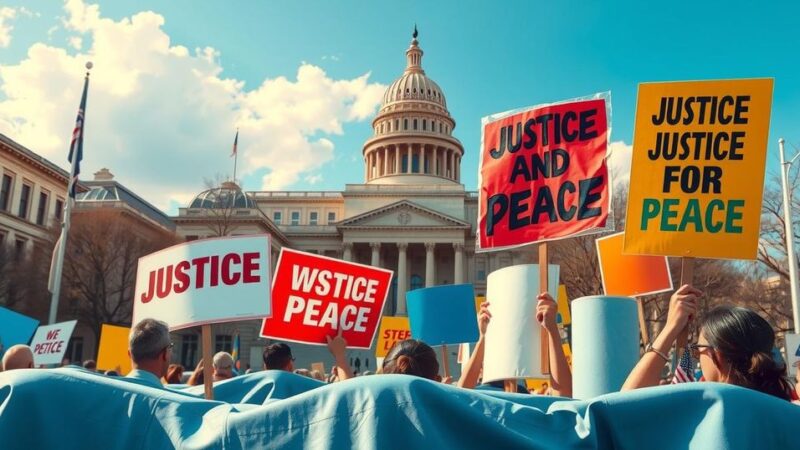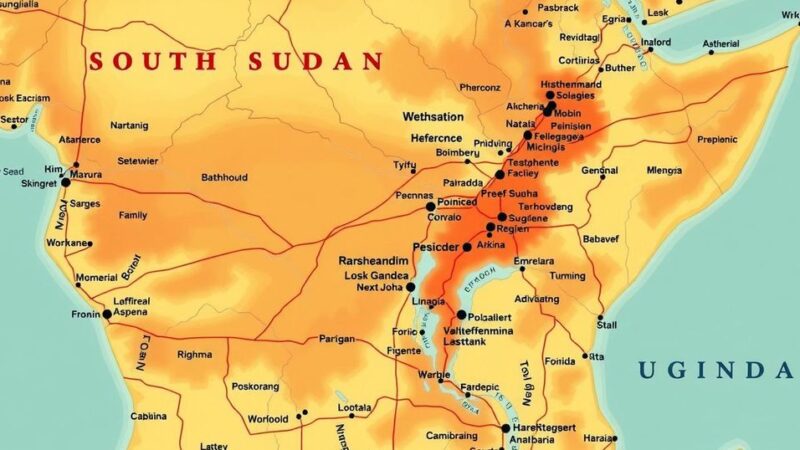U.S. officials emphasize the need for Lebanon to normalize relations with Israel through diplomatic negotiations. Morgan Ortagus highlights key issues to address, including prisoners and territorial disputes. Steve Witkoff expresses optimism about broader regional impacts, while U.S. pressures Lebanon to comply with directives, despite constitutional barriers and historical lessons against normalization.
In a recent statement, Morgan Ortagus, the Deputy Presidential Special Envoy to the Middle East, reiterated the United States’ goal of fostering a peace agreement between Lebanon and Israel. Speaking to Lebanese Al-Jadeed TV, she emphasized the necessity of initiating diplomatic negotiations through three working groups to address key issues, including the fate of occupied sites, the release of Lebanese prisoners, and land border demarcation. Ortagus asserted that negotiations concerning prisoners are unwarranted since Lebanon does not hold any Israeli captives.
Steve Witkoff, Donald Trump’s special envoy, underscored Washington’s urgency to commence peace negotiations with Lebanon and Syria and expressed optimism regarding possible Saudi involvement in the Abraham Accords. He acknowledged that political changes in the region could extend to Lebanon, reflecting a broader strategy. Furthermore, before Lebanon’s presidential election, the U.S. embassy interrogated several candidates about their views on normalization with Israel and arms concerning Hezbollah, marking an American interest in dictating Lebanon’s political landscape.
U.S. Ambassador to Beirut, Lisa Johnson, communicated to leading Lebanese figures the need to achieve a comprehensive and permanent resolution with Israel. In her statements, she consistently suggested that Hezbollah is in a weakened state and unlikely to address the challenges imposed upon it. The United States appears confident that few Lebanese officials would oppose its directives, thus persisting in its controversial agenda.
Moreover, the U.S. has reportedly constrained the role of a UN committee monitoring Israeli violations of Lebanese sovereignty, alleging that these actions are merely responses to Hezbollah’s “violations.” This narrative aims to justify the formation of “diplomatic” working groups despite contradicting Lebanon’s constitution, which forbids direct meetings between its diplomats and those of Israel. Leaders in Lebanon are now urged to reflect on the negative outcomes of normalization seen in Egypt, Jordan, and the Palestinian Authority, as well as the ongoing situation in Syria, to avoid repeating past mistakes.
The U.S. positions itself firmly in favor of normalizing relations between Lebanon and Israel, as articulated by officials such as Morgan Ortagus and Steve Witkoff. Despite the constitutional challenges and historical precedents suggesting negative outcomes for similar actions in the region, the U.S. continues to advocate for diplomatic negotiations. Lebanese leaders are cautioned to heed the lessons from past normalization efforts that led to adverse consequences for their neighbors.
Original Source: www.tehrantimes.com






